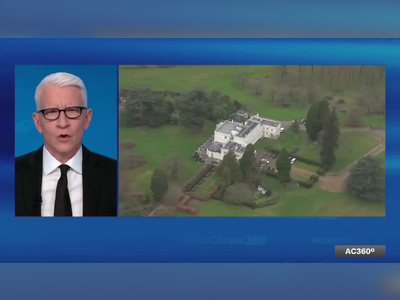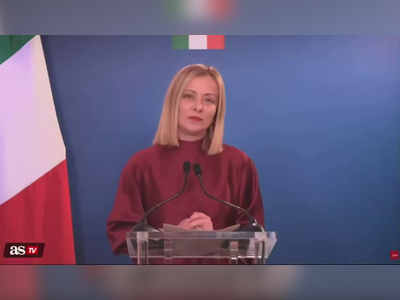
U.S. Explores Curbs on Ant Group, Tencent Payment Systems
Debate over how and whether to restrict Ant Group’s and Tencent’s payment systems has accelerated among senior U.S. officials in recent weeks though a final decision isn’t imminent, said the people, who spoke on condition of anonymity about an idea that’s still taking shape.
U.S. officials are concerned that Ant Group and other Chinese fintech platforms will come to dominate global digital payments, the people said. That in turn could give China access to banking and personal data of hundreds of millions of people. Senior administration officials discussed the idea in a Sept. 30 meeting in the White House Situation Room, according to two people familiar with the matter.
Yet officials acknowledge that it would be difficult to move forward until they sort out the mechanism, and that is proving difficult to do as the officials seek to find a legally sound approach.
There’s no indication the idea has been presented to President Donald Trump, whose approval would be required to proceed, two of the people said. The president fell ill with coronavirus a day after officials met to discuss China, and the issue hasn’t made much progress at such a senior level in the days since, one of the people said.
The internal discussions come as Ant, the online finance giant and owner of the Alipay e-payment system, nears a dual listing in Shanghai and Hong Kong, possibly by the end of the month. An affiliate of Chinese tech giant Alibaba Group Holding Ltd., Ant is preparing for an IPO of about $35 billion that would give it an overall valuation of $250 billion, twice that of Citigroup Inc.
Major Escalation
Ant Group said in a statement that it unaware of any administration discussions and that its “business is primarily in China and we are excited about our growth prospects in the China market.”
Tencent didn’t immediately respond to requests for comment. Communications staff for the White House, Treasury Department and State Department declined to comment. The U.S. Trade Representative’s office and Commerce Department also didn’t immediately reply to requests for comment.
Imposing restrictions on Ant Group -- a crown jewel of the world’s second-largest economy -- would mark a major escalation in the Trump administration’s economic and political confrontation with Beijing. Since Trump took office, the U.S. has taken aim at Chinese success stories including ByteDance Ltd.’s TikTok video app and Huawei Technologies Co.
The U.S. discussions are sure to cast a shadow over the Ant Group share sale, where many investors are lining up to invest billions of dollars. Restrictions would also impact U.S. investors who have already sunk millions of dollars into Ant. In 2018, Silver Lake Management LLC, Warburg Pincus LLC, and Carlyle Group Inc. invested at least $500 million each in the financial technology giant, people familiar with the matter said at the time.
There’s an incentive to act now, with the U.S. election approaching: embed as many restrictions against China as possible in the hopes that some of them will stick if Democratic nominee Joe Biden carries his current lead in national polls into a victory next month over Trump.
Discussions around Ant Group’s and Tencent’s payment platforms have been held up in part by debate over what authority the government would use to restrict the companies, and how quickly any measures could be implemented. It’s deemed unlikely by U.S. officials that measures could be ready before the Nov. 3 election, and there are concerns that the actions could be swatted down in court.
One option would be to use authorities granted under a 2019 order to protect the digital supply chain, though that would likely add weeks to the administration’s timeline. A speedier alternative would be to draft a new executive order along the lines of the presidential directives banning ByteDance’s TikTok and Tencent’s WeChat messaging app.
That course has its risks. Courts have recently granted injunctions halting the administration’s bids to ban TikTok and WeChat, saying the White House may have exceeded its authority and granting a temporary reprieve to the apps from being removed from U.S. digital stores.
Yet one official said the administration thinks it would have an easier time in the courts if it went that route because, while the TikTok and Wechat bans were challenged on free-speech grounds, there would be no such concern with Alipay and the Tencent payment services.
Another potentially more damaging possibility is putting Ant Group and Tencent on the Treasury Department’s specially designated national list, a move that would make them all but radioactive for any U.S. company -- and possibly overseas firms -- to do business with them.
Any significant move against Ant Group risks provoking Beijing far more than previous U.S. measures, even those aimed at TikTok. It would likely fuel suspicions that the U.S. is not interested in data security but instead wants to hold back innovative Chinese companies that have far surpassed anything Silicon Valley has to offer.
Alipay is woven into the fabric of Chinese society, providing services from wealth management and insurance to credit checks and consumer loans. If U.S. buyers purchase items from its affiliate Alibaba, their identity and private data could be collected.
Retreat from U.S.
That said Ant retreated from expansions in the U.S., in tandem with Alibaba, after U.S.-China tensions escalated. According to its IPO prospectus, Ant gets less than 5% of its revenue from outside China. And only a tiny portion of that is from the U.S., according to a person familiar with the matter.
The sanctions idea originated with administration officials who favor a hard line toward Beijing -- especially in Secretary of State Michael Pompeo’s State Department. They argue that China’s ruling Communist Party wants access to user data from around the world through companies that have grown increasingly powerful on the global stage.
Those concerns echo administration arguments that telecommunications equipment maker Huawei’s rush into 5G mobile networks creates a worldwide security risk. U.S. officials say that firms such as Ant, Tencent and Huawei are complicit in what U.S. officials have previously characterized as the technological repression of the Chinese people, claims those companies and China’s government have rejected.
The idea of restricting Ant has been championed from the State Department, where advisers are pressing a “Clean Network” initiative. In August, as part of that effort, Pompeo unveiled new guidance warning against using Chinese 5G equipment, undersea cables and cloud-computing software.
The public element of that initiative didn’t focus on digital payments but officials have privately discussed the idea of a “clean currency” system that would purge Chinese firms from online payments. The administration has also been emboldened by its anti-Huawei campaign, which it credits with pressuring many European countries to effectively ban the company’s equipment from their 5G networks.
“Freedom-loving nations must come together to confront the CCP’s aggressive behavior,” Pompeo told reporters in August about the Clean Network plan. “And the good news is the tide is absolutely turning.”











